
The phase 2/3 NRG-GY005 trial assessing olaparib plus dediranib did not improve survival vs standard of care in ovarian cancer.

Your AI-Trained Oncology Knowledge Connection!


The phase 2/3 NRG-GY005 trial assessing olaparib plus dediranib did not improve survival vs standard of care in ovarian cancer.

Benefits with enfortumab vedotin plus pembrolizumab in prespecified patient subgroups with urothelial carcinoma in the EV-302 trial appear to be consistent with outcomes in the overall study population.
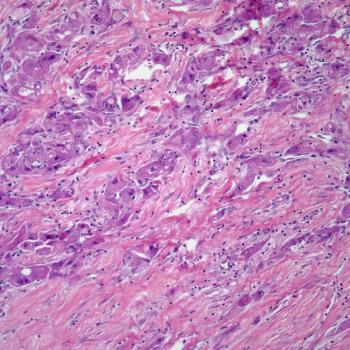
Durvalumab plus bevacizumab and TACE may be a new standard of care in unresectable hepatocellular carcinoma eligible for embolization, according to Riccardo Lencioni, MD.

DZD8586 results in favorable safety with limited grade 3 or greater treatment-emergent adverse effects in those with B-cell non-Hodgkin lymphoma, according to data from 2 ongoing phase 1 trials.
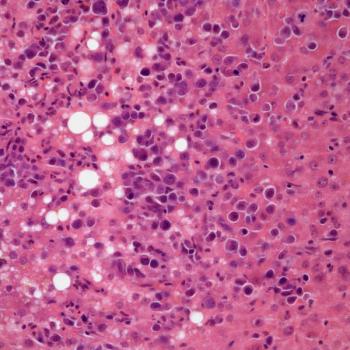
Data from the phase 3 PERSEUS trial supports D-VRd followed by DR maintenance as a new standard of care in patients with newly diagnosed, transplant-eligible multiple myeloma.

When used as a minimal residual disease (MRD)–guided treatment approach, ibrutinib (Imbruvica) combined with venetoclax (Venclexta) improved progression-free and overall survival (OS) compared with fludarabine, cyclophosphamide, and rituximab (Rituxan; FCR) in patients with treatment-naive chronic lymphocytic leukemia (CLL), as observed in the phase 3 FLAIR trial.

Older patients with hematological malignancies who received Orca-T therapy plus myeloablative chemotherapy have similar relapse-free survival rates compared with younger patients.

Patients with promyelocytic leukemia saw an improved overall survival and relapse-free survival when treated with an all-oral regimen of arsenic trioxide, all-trans retinoic acid, and ascorbic acid.

Amivantamab plus lazertinib may represent a new standard of care in those with EGFR-mutated advanced non–small cell lung cancer, according to Byoung Chul Cho, MD, PhD.

Findings from the phase 3 innovaTV trial support tisotumab vedotin as a potential standard of care for patients with metastatic or recurrent cervical cancer following disease progression.

Amivantimab produces superior progression-free survival in EGFR exon 20 insertion–positive non–small-cell lung cancer.

Sacituzumab govitecan showed anti-tumor activity in patients with pretreated metastatic or locally recurrent head and neck squamous cell carcinoma.

Treatment with BI 764532 produces a manageable safety profile among those with small cell lung cancer and neuroendocrine carcinoma in a phase 1 trial.

Treatment with zongertinib produces low rates of EGFR-mediated adverse effects among patients with HER2-mutated non–small cell lung cancer in the phase 1a/b BEAMION Lung-1 trial.

Treatment with loncastuximab tesirine-lpyl in the safety run-in portion of the LOTIS-5 study appears to be promising, according to Michal Kwiatek, MD, PhD

Investigators report no differences in rates of graft-versus-host-disease with intensive or non-intensive consolidation chemotherapy prior to transplantation for elderly patients with acute myeloid leukemia.

Eddy Saad, MD, explained how responses to immune checkpoint inhibitors can be elicited in patients with metastatic renal cell carcinoma.
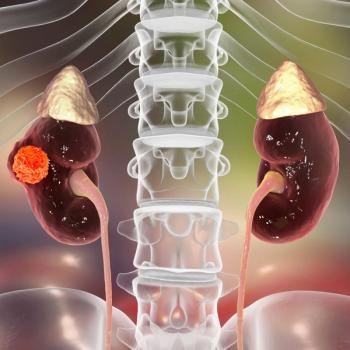
In patients with metastatic renal cell carcinoma, neoadjuvant immunotherapy–based combinations yielded reductions in tumor size and pathologic necrosis at the time of cytoreductive nephrectomy.

Zanubrutinib and acalabrutinib produce similar safety profiles in the treatment of patients with relapsed/refractory chronic lymphocytic leukemia in the phase 3 ASCEND and APLINE trials.
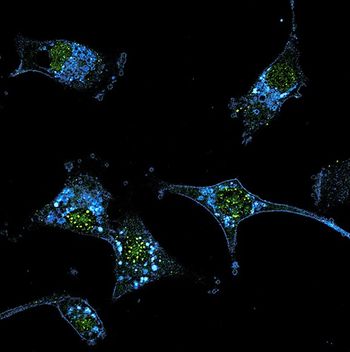
mRNA-4157 plus pembrolizumab appears well tolerated without an increase in immune-mediated adverse effects vs pembrolizumab monotherapy among those with high-risk melanoma in the phase 2 KEYNOTE-942 trial.
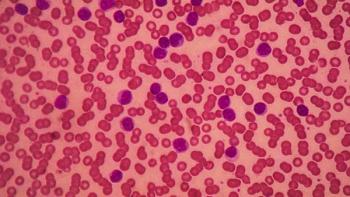
Treatment with lisocabtagene maraleucel correlates with a reduction in CD19-positive cells in responders and patients with stable disease among those with relapsed or refractory chronic lymphocytic leukemia or small lymphocytic lymphoma in the phase 1/2 TRANSCEND CLL 004 trial.

Sintilimab plus chemoradiotherapy produces a higher 3-year distant metastasis-free survival rate vs chemoradiotherapy alone among patients with advanced nasopharyngeal carcinoma in the phase 3 CONTINUUM trial.

Nivolumab plus ipilimumab and chemotherapy also appears to produce a higher overall response rate compared with chemotherapy alone among those with squamous non–small cell lung cancer in the phase 3 CheckMate 9LA trial.

Treatment with tovorafenib appears well tolerated among pediatric patients with low-grade glioma, according to findings from the phase 2 FIREFLY trial.

Numerous patients with heavily pretreated relapsed/refractory multiple myeloma responded following treatment with talquetamab and daratumumab.

Luspatercept may lead to a paradigm shift in the treatment of patients with lower-risk myelodysplastic syndrome, according to an expert from The University of Texas MD Anderson Cancer Center.
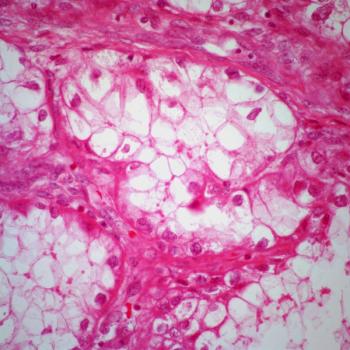
Adavosertib does not appear to be well tolerated in patients with previously treated recurrent or persistent uterine serous carcinoma in the phase 2b ADAGIO trial.

An exploratory analysis indicates that overall survival did not improve with the use of single-agent atezolizumab in untreated locally advanced or metastatic urothelial cancer.
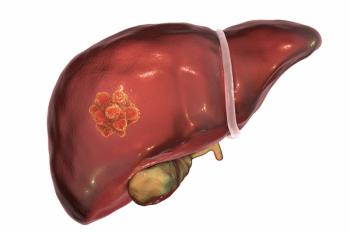
Patients diagnosed with locally advanced, hepatocellular carcinoma experience benefit in overall survival, progression-free survival, and time to disease progression following treatment with sorafenib and stereotactic body radiation therapy.

According to the phase 3 PERSIST-1 trial and PAC203 trial, thrombocytopenia was associated with myelofibrosis treatment.